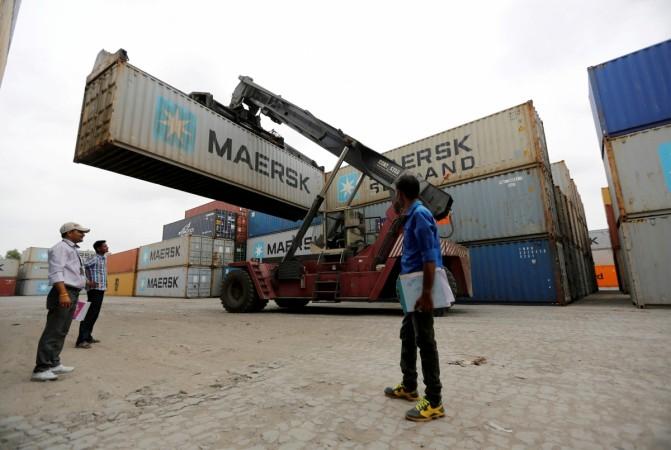Exporters in India will likely get an outright exemption from the integrated goods and services tax (IGST) on imported inputs that currently do not face basic custom duty in a bid to increase the activities in the sector.
The exports sector has been hit hard by rupee appreciation and GST confusions that led to a slowdown in the trading activities of the country. A final decision on the matter will be taken by the GST Council on October 6, The Times of India reported.
"A scheme is under discussion... It could be taken up by the council," said one of the officials. The proposal is under close examination, said another official.
Earlier this month, exporters wrote a formal letter to the Narendra Modi-led government asking for complete exemption on payment of the new tax system as the procedure to get reimbursment under the GST regime is time-consuming and leading to a serious capital crunch.
Reports suggest that about Rs 1.85 lakh crore of working capital will get stuck annually because of GST implementation. Many exporters are already facing capital shortage and have started to turn away orders.
Exporters, before GST was implemented, were exempted from paying duties. Now, they have to first pay up tax and can seek a refund only following that. As the process is slow, it keeps a portion of their working capital on hold, which further pushes up manufacturing costs as they have to pay duties on inputs.
Small exporters have been severely hit by the new tax regime as they have access to fewer resources and getting finances from banks is also not easy.
"The biggest issue for exporters at present is liquidity. Firstly, there is the issue of blocked refunds and the other is that payment of taxes has to be done upfront. Banks do not provide loans for payment of taxes... exemption will help provide a solution on a long-term basis," said Ajay Sahai, Director General and Chief Executive Officer at Federation of Indian Exports Organisation (FIEO).

India's exports growth slowed to an eight-month low in July, the month of the GST rollout, weighed down by appreciation in the rupee and disruptions caused by the new tax regime.
However, the Centre is keen on a quick resolution to the matter as exports contribute a bulk of the new jobs created in the country. It is also trying to ensure that local industries are not put to disadvantage.
Additionally, Indian exports in August rose after slowing down in July. Exports grew 10.3 percent in August to $23.8 billion. But, imports surpassed exports and grew about 21 percent -- widening the trade deficit to $11.6 billion from $7.7 billion a year ago.
At a time when India is struggling to increase export orders to narrow down its trade deficit, if the government fails to meet the demands of exporters and exempt them from paying IGST, it is feared that more orders will be turned away in future leading to the trade deficit widening further.














